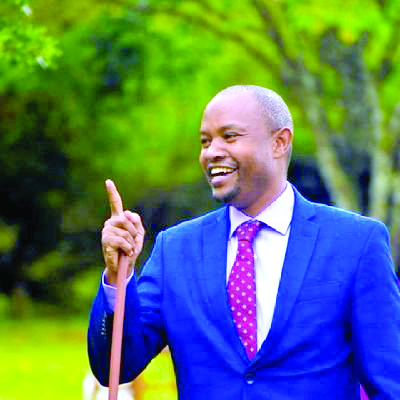How chess and Scrabble are helping children open up about mental struggles

Mind games can sometimes be annoying and satisfying at the same time. The person with the upper hand they are always in control. But the other party with the lesser dominion struggles to find a solution, and no matter how annoying it can be for them, they must strive to turn the tables.
Mind games like chess, Scrabble, crosswords and Sudoku have gained popularity in the past years.
So much so that some of them are being played in international competitions, and even being taught in schools.
And while they may be considered just games for some, did you know that mind games can promote mental health?
Games like chess and Scrabble tend to stimulate cognitive functions, improving focus and reducing stress and anxiety.
Having struggled with anxiety for the longest time, owing to unemployment after ditching the corporate world, which proved unbearable, Joan Watiri Wangari started the Brainy Bunch, an organisation that works with individuals and schools, offering Scrabble and chess classes to promote mental health.
“I’ve struggled with anxiety for the longest time. I would push myself to the point of near exhaustion because I want to deliver, and at the end of the day, when I’m supposed to rest, my mind starts racing, and the anxiety grips me,” Wangari says.
To help redirect her anxiety, she disclosed that playing chess and Scrabble helped her let off some steam.
However, in 2021, while working as a counsellor and partaking in social work initiatives at a children’s home, she realised that she was not the only one suffering the ‘anxiety ordeal’.
Wangari says that during her time there, she met kids as young as six years old who suffered the same and needed an outlet.
She would then use board games to initiate conversations with the children, where they would open up and talk about their struggles.
“I would sit down with the children and teenagers, play a game of Scrabble, and they would tell me what was bothering them, or we would play chess, and you’d see them opening up. That’s when I realised I was no longer just a counsellor or a social worker, but someone that they could come to when they have their issues,” she adds.
Wangari narrates that the children started voluntarily opening up on issues that not only happened in school but also at home with their parents.
At the end of the day, they felt better and happier.
It was in May 2023 that an idea struck, to establish an organisation that promotes young children’s mental health through Scrabble and chess.
Having lived the experience and also worked as a marketing manager for Scrabble Kenya in 2022, Wangari was set to embark on a new journey.
Resilience
“While at Scrabble Kenya, the Africa Youth Scrabble Championship trophy tour was ongoing. Juja Preparatory was to receive a trophy, and I organised the event for them. That’s the time, together with the headteacher, introducing it as Scrabble Kenya and not as Brainy Bunch or anything else,” she says.
But after the event, in May, she went to a school in Kitengela to offer Scrabble training services, and that’s when Brainy Bunch officially began.
She says her dream for Brainy Bunch was for it to be an organisation that works with children, pushing for literacy development and mental health awareness through mind games.
Besides mind games, the company also offers coding classes for children.
“Most of the children we deal with are schoolgoers from as young as grade one. Privately, we have individuals who are as young as four years,” she says.
The young mental health champion, a graduate from Daystar with a Bachelor of Arts in Social work, says that despite the mind games calling for skill and precision, they allow the children to have fun while at it.
In May this year, Brainy Bunch held a tournament at the Nairobi Academy to celebrate its two years of existence.
The event saw a total of 70 students participate in Scrabble and chess. The event was aimed at pushing the kids to be more aware of themselves, outspoken, and express their feelings instead of bottling up emotions.
“Most of the children, when they start the games, are not able to deliver. But with time, they become better and develop more skills along the way. The greatest improvement down the line is being able to control one’s emotions and even speak up,” she says.
In the two years since its establishment, Brainy Bunch has worked with 12 schools across different regions in Kenya, impacting more than 500 children.
In the next five years, Wangari says she is looking to work with more schools and children and push their talents at the same time.
“We would like to have a facility where they could come, play, and get counsellors to talk to,” she says.
Wangari emphasises that just as adults experience mental health issues, so do children.
As such, it is important for children and teenagers to be able to acknowledge and control their mental health.
“If grown-ups who are excelling at wild stages can take a break due to mental health, what about that six-year-old who’s really good at chess? Or that 10-year-old who’s really good at Scrabble? What happens to them? How do they handle that pressure?” she wonders.
The mental health champion believes that, as much as adults believe that children rarely go through a lot, they actually do.
“We really need to listen to what kids are saying. Generally, we need to be more alert and aware of our kids. The majority of the time, especially in schools, teachers may not pay attention due to the burden of having too many students or having and pay attention to each child,” she highlights.
Wangari, who is also a mother, says teachers and parents need to always be on the lookout for signs that signal mental issues in children.
It starts by being attentive to what they are saying and even noticing certain behavioural changes.
She further adds that children are in the limelight and through Brainy Bunch, they are helping them win on different levels, by teaching them “how to manage those expectations, how to have mental fortitude whenever it comes to winning and losing, how to handle a loss and a win.”
Brainy Bunch, which is majorly funded by Wangari’s mother, who doubles up as a mentor, is run by her, having been in the social work arena.
Her brother is in charge of coding and advanced chess classes.
Wangari’s younger sister, who once represented the country in Scrabble when she was six years old, is in charge of social media.
Additionally, they have professional trainers who ensure the children get the best and most effective training.














